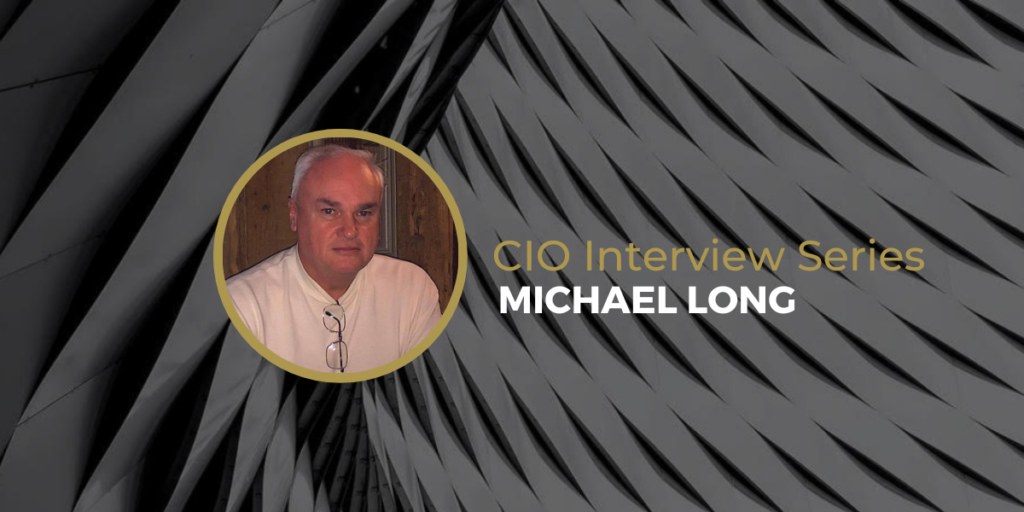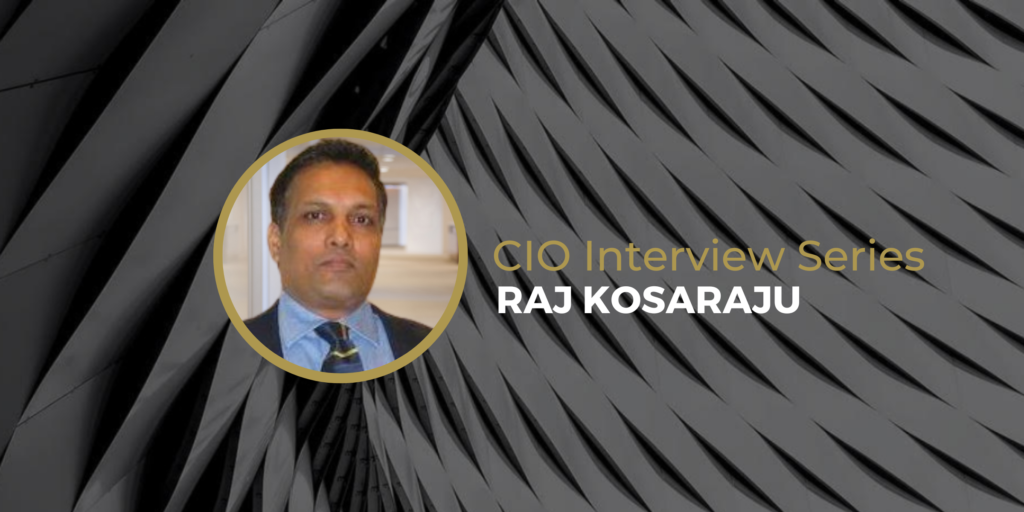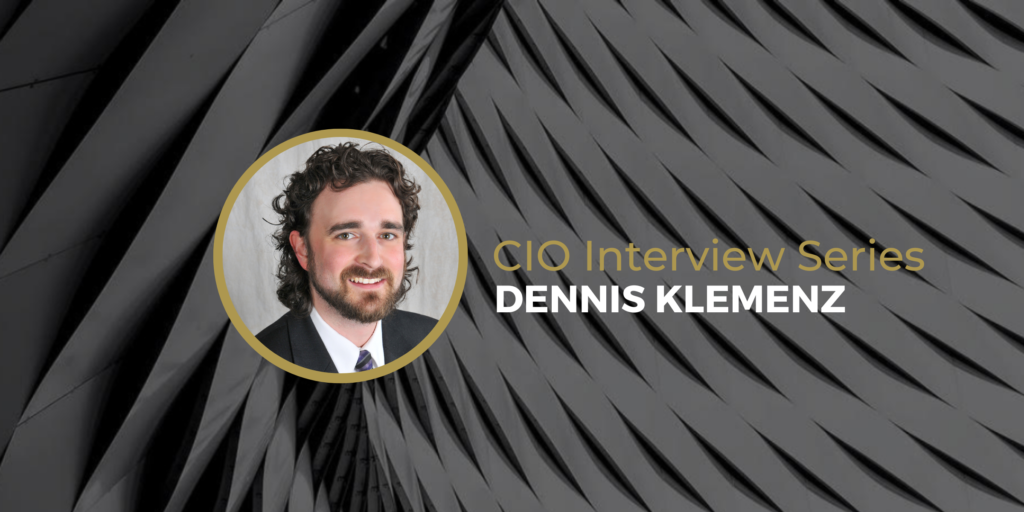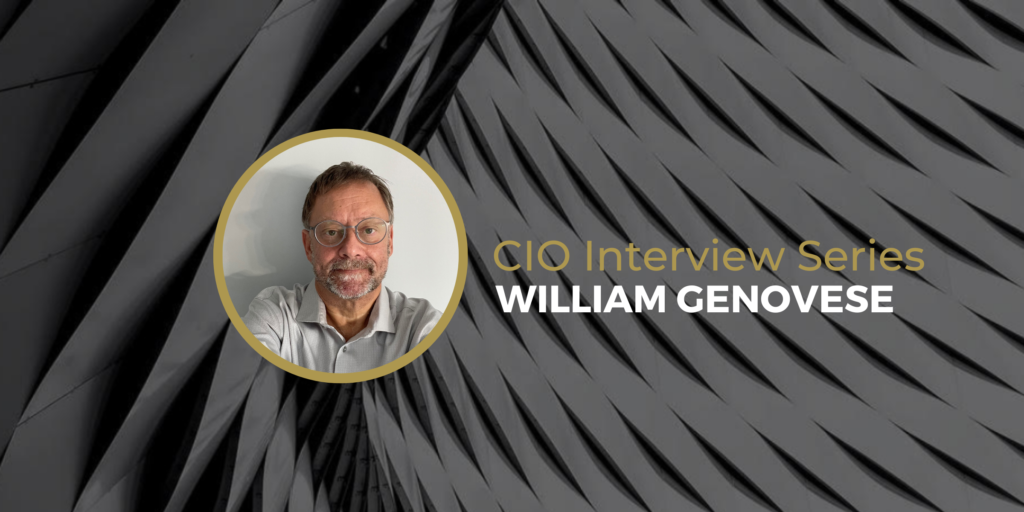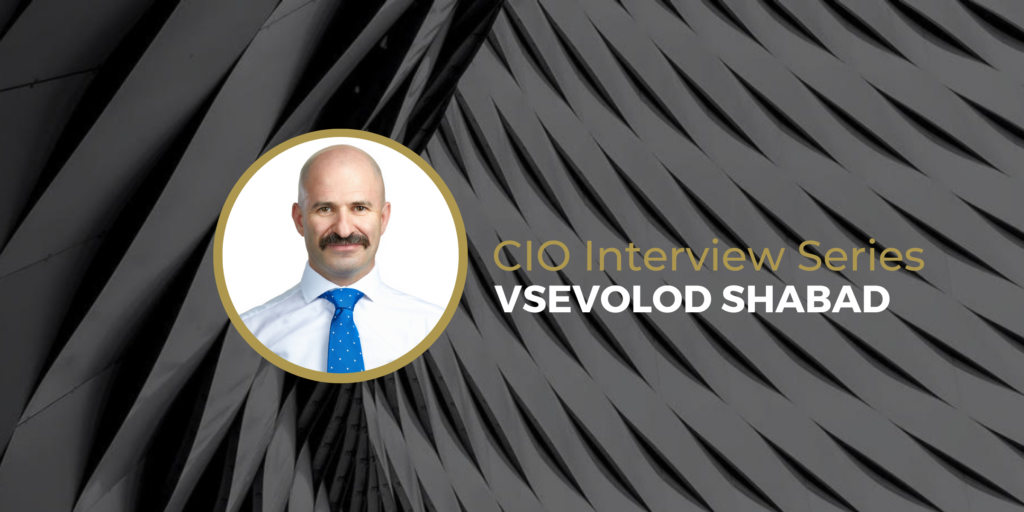Kelvyn Hipperson
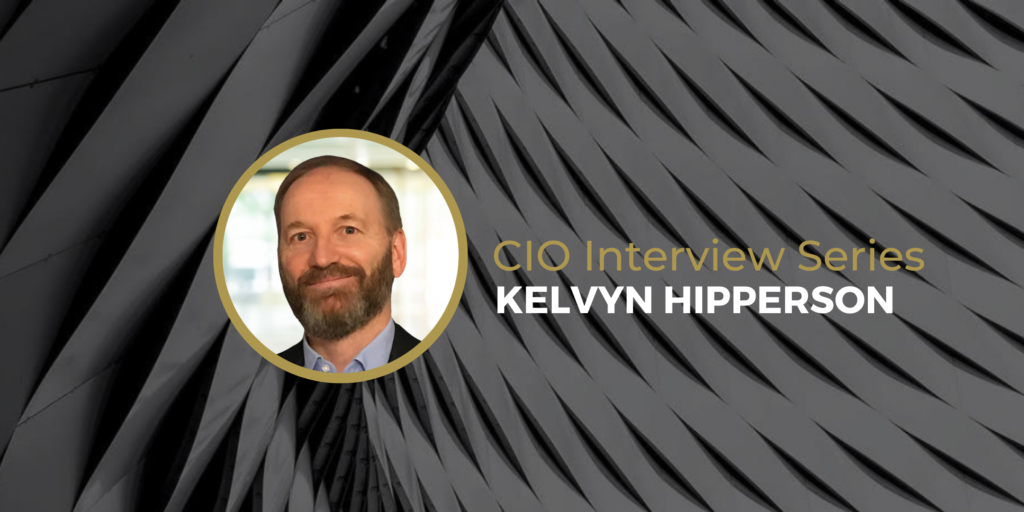
Chief Information Officer at Cornwall Partnership NHS Foundation Trust & Royal Cornwall Hospitals Trust
Can you please provide a little introduction about yourself
Hi, I’m Kelvyn Hipperson and I’m Executive CIO for Cornwall Partnership NHS Foundation Trust and Royal Cornwall Hospitals Trust, I’m also the digital lead for the Cornwall & Isles of Scilly Integrated Care System. Cornwall is a unique area in many ways and in health is also unusual in having only three organisations for commissioning, community/mental health and acute services. In my role across all three and also working with primary care, I’m very lucky to be able to support IT services and digital transformation across the whole of Cornwall and the Isles of Scilly.
What has your journey to your position been like? What path have you taken?
I expect it’s a bit of cliché to say it’s been an interesting and varied path, I started out very much in the hard technology side of our profession, working on real-time vision systems and embedded software. So not sure anyone could have predicted that such a niche beginning, would one day lead to a role in one of our most well-known and treasured national institutions.
My first role was in a very small company, which developed innovative products by working in partnership with the local university. The great thing about a small company is the opportunity for lots of technical responsibility and professional autonomy pretty much from day one. We also exported most of the products across Europe and the US, so plenty of travel and lessons in the importance of supportability. As unless I fixed the problem quickly, jumping on a plane day, night or weekend might be the only option.
For me, the path into more senior positions was through moving into IT project and programme management. Joining the public sector in the early 2000s was a revelation in terms of the scale of projects and range of opportunities open to you if you have the skills and willingness to take them on, and I’ve never looked back. In the early 2010s, I had the opportunity to lead a programme to restructure defence IT & communications services, just as the idea of breaking up very large IT outsourcing deals was coming into prominence. That experience including contributing to a Strategic Defence Review, led to a role in the Senior Civil Service delivering national IT infrastructure services. Much of the next seven years was spent re-structuring and transforming those services, including a whole scale shift to flexible working aligned with estate transformation. Although I had no inkling of it at the time, the remote working capabilities we had in place by the time of the floods in the north in 2015 and ‘beast from the east’ in 2018, were just a small insight into what was going to be needed a few years later for Covid!
In 2019 I started my current CIO roles in the NHS, I’d had an idea for a while that my experience could be useful and the opportunity in Cornwall IoS to help join up care and support transformation of services was immensely attractive. I have to say, three years on, and even with two of those having been dominated by Covid, it has been everything I hoped for and more.
Has it always been your vision to reach the position you’re at? Was your current role part of your vision to become a tech leader?
Not initially for something a specific as CIO, although I did have a strong sense from quite early on that I wanted to be in tech leadership in some form. I was interested in more than just technology for its own sake and really enjoyed working with lots of different people to meet their needs, long before user centered design became commonplace. I also developed an interest in strategy and understanding the wider business context. The CIO role brings all those things together of course and is definitely the right job for you if you want to be part of making a difference. Which is particularly true in health and supporting our front-line colleagues in the incredible things they do every day.
Have you had a role model or mentor that has helped you on your journey?
Yes, I worked with a volunteer mentor from the IET for a few years prior to moving up to large-scale national programming. I know there are quite varied views on the role of the professional bodies but having worked in smaller organizations which often have limited resources for professional development. I’ve found the different ways you can get involved a valuable way to gain wider experience and knowledge. I also found the self-reflection needed to gain professional qualifications helped with career planning. I genuinely hadn’t appreciated just how much project management I was doing in a technical role and the parallels between professional and management skills until I went through the Chartered Engineer process and looking back it was a key step on my journey.
I also wouldn’t underestimate the importance of the day-to-day conversations with everyone around you. The feedback you receive and how you respond to it, are so important to the perceptions of the service you provide and support for anything you might want to do in the future.
How do you see the role of the technology leader evolving over the next 5 years?
Very much building on the experience of the last couple of years that technology can be adopted really fast and make a huge difference when everyone is working to the same goals. When Covid started, and everyone recognized that virtual consultation and video conferencing were going to be needed on a massive scale. I had a few weeks of concern that we could very easily fall into a situation with dozens of fragmented solutions. We were literally being bombarded with offers of help, but unfortunately, with little consideration of how it would fit in with existing approaches. Luckily though we’d been trialing Teams and so were able to work with NHS Digital to be in the first wave of rollouts when you might have expected it to be just the big urban centres. Also, across the southwest, we agreed on a common platform for virtual consultation. The collaborative approaches and, most importantly, the buy-in from our clinical colleagues have been the key, and we’ve subsequently gone on to develop a joint project across Devon and Cornwall for Shared Care Records. Which will make things much easier for anyone moving between the two counties to receive or deliver care.
What skills do you think leaders of the future will need in order to thrive?
Again, everything that has got us through the last two years, especially collaboration, agility and resilience. The next big challenge is getting back to sustainability, in some ways it’s harder right now than earlier in the pandemic as we’ve moved from very immediate responses into long term recovery, but with very little respite in between. So, there is still a lot more work to do to provide support and reassurance for all our colleagues that there will be a time in the future when the demands of care delivery become more manageable again. We plan to play our role in that, with more automation, patient empowerment and better information sharing.
How do you keep current with new skills, technologies and personal development?
Normally it would be a typical mix of short courses, conferences and talking to suppliers, but I’ve also just completed the Digital Health Leadership PGDip with the NHS Digital Academy and Imperial College. It seemed like such a good idea to apply being new to the NHS and before any of us had heard of Covid. Again, thanks to virtual delivery, we got through it, though, and without all the extra days of travel, anything outside the southwest usually involves!
We also do quite a lot of board development in both the trusts and even when it’s the same topics it doesn’t feel like a duplication, as each session will focus on different aspects which is great for reinforcing the learning. And we’re well connected as a CIO group across the southwest, so there are lots of opportunities for peer learning and sharing of information.
What do you see as the next leap in technology that will impact your business or industry in particular?
AI and automation, which I know have been just over the horizon for many years, but I think they’re really not that far off mass adoption now. Although the pace of technology change is often mentioned, if you look carefully things only move really start to move quickly when the need becomes obvious and the solutions are mature enough to meet that need. We’ve seen that most recently with remote working and virtual consultation and previously with smartphones or the even earlier the switch from pagers to SMS. Demographic change and getting back to sustainable services are what’s likely to drive the need in the NHS and we’re now beginning to see robust solutions which we will be able to adopt quickly.
“Believing in yourself and those around you, along with some guiding principles makes it possible to progress when there is a lot of uncertainty.”
If you were mentoring a leader of the future, what advice or guidance would you give to help them on their way?
We’re all different and as I’ve found there are so many different paths it’s hard to have a definitive plan. Which is where believing in yourself and those around you, along with some guiding principles makes it possible to progress even when there is a lot of uncertainty. Experience also accumulates and is much more transferable between different sectors than is often thought. Which why the sage advice to enjoy new experiences, listen and never stop learning is so valuable.
Is there anything in particular that you would still like to achieve in your career or what is the next step on your journey?
One of the most striking things when I started just over three years ago, was just how well aligned the asks of the role were, with what I hoped I could bring to the NHS. I still feel the same today, especially as through the challenges last couple of years we’ve become even more aligned with the developing transformational change agenda for tech in the NHS. So, I really want to see that through and get to the point where the benefits in care delivery become really clear to everyone.
If you could change one thing in the world, what would it be?
When I started answering these thought-provoking questions from the CIO Circle, the developing situation in Ukraine was a concern, but has rapidly escalated into the terrible situation we’re seeing now. Like so many, I desperately hope that a peaceful solution can be found and my thoughts and admiration are with all those affected and everyone so generously supporting them in any way they can.
A big thank you to Kelvyn Hipperson from Cornwall Partnership NHS Foundation Trust & Royal Cornwall Hospitals Trust for sharing his journey to date.


